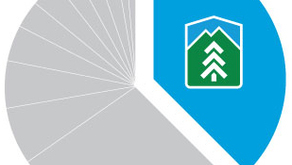Information Regarding Aircraft Owner Trusts
Bank of Utah offers many financial services, including corporate and personal trust services. The concept of owner trusts was originally created in Britain in the 12th century. Owner trusts were created to allow a third party (trustee) to hold legal title to property for the benefit of the real owner (beneficiary). Owner trusts are established for a variety of purposes, including Federal Aviation Administration (FAA) registration of aircraft. A foreign citizen, a limited partnership, an LLC or corporation, may not qualify for FAA registration on its own, but these entities can legally use a trust to acquire a valid registration for their aircraft.
Globally there are multiple aircraft registries, but the FAA registry is often preferred and widely accepted. Many entities, including U.S. companies, do not qualify as U.S. citizens for FAA registration purposes. Nevertheless, U.S. law provides for FAA registration of aircraft for these entities through a few methods, with the owner trust being the most simple and cost-effective. FAA records reflect the trustee as the titled and registered owner, rather than the beneficiary. However, because the trust is filed with the FAA, the U.S. government has a record of all trust beneficiaries.
Bank of Utah’s well-respected trust department has built a special expertise and reputation in aircraft trusts. Our expertise is sought after by corporations from around the world. As a trustee, Bank of Utah does not purchase these assets for its own account, nor does it lend or finance the acquisition of any of these assets. Bank of Utah also does not retain operational control of any of the aircraft owned in trust but transfers such control to an operator or lessee by way of a written agreement. Many of the aircraft operated by commercial airlines are owned through owner trusts and subsequently leased to the airline.
The importance and legitimacy of aircraft owner trusts in the United States have been well-recognized by the FAA for many years. Bank of Utah works diligently to follow all FAA and bank regulations, and continues to update policies and procedures in an effort to follow best industry practices. If the FAA finds an issue related to an aircraft, Bank of Utah works hand in hand with the FAA to resolve the matter and takes immediate, appropriate action. The Bank’s internal risk-management processes are reviewed frequently to implement best practices and enhance the risk-assessment of countries as the world changes.
Bank of Utah follows standards that are mandated by the highly-regulated banking industry, and follows all laws and regulations regarding the people and companies with whom it does business.
The trust relationship, like most financial service relationships, is confidential. Bank of Utah is both contractually and legally prohibited from sharing ownership information unless the requesting party is a government regulator or if the request is pursuant to a legal subpoena. Therefore, Bank of Utah is not able to discuss ownership information or actions taken within our customer portfolio, even though some of this information is a matter of public record. This is consistent with both FAA and banking regulations.
Bank of Utah is committed to the corporate trust business for the long-term. Our organization has some of the finest, most experienced trust professionals in the industry, and we will continue to provide the highest quality corporate trust services.
Media inquiries: Cherie Hanson - SVP Marketing & Communications.
For more information about Bank of Utah’s Aircraft Owner Trusts, see our frequently asked questions.







